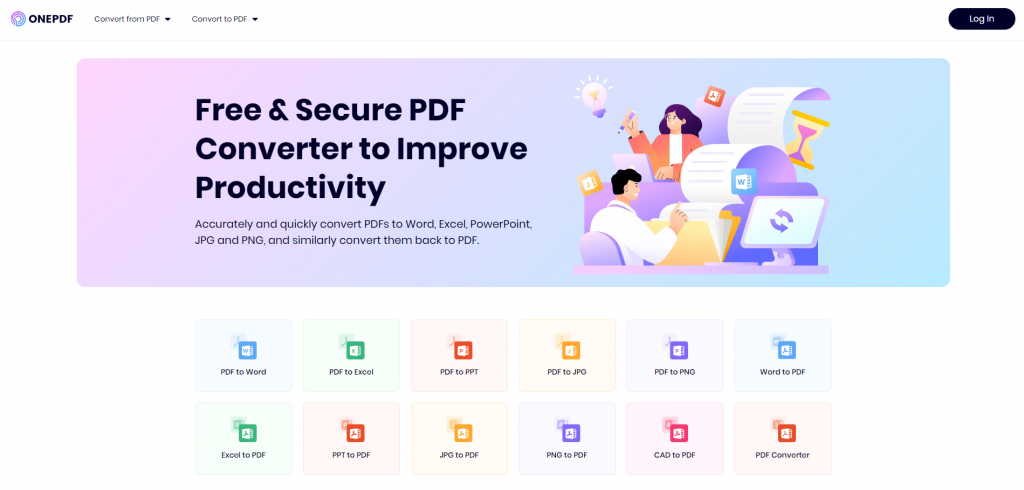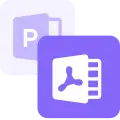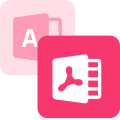No matter where you are on the ladder, everyone always has room for improvement when it comes to work. This fact becomes especially apparent on those slow days when you’re feeling less productive than usual. Maybe it’s due to brain fog, or perhaps you’re procrastinating due to being tired.
Sometimes, in those moments, the natural impulse is to put things off and take frequent breaks. But a more logical path can be a more creative one. Perhaps what you need is a fresh perspective, some new advice, and a different approach altogether. An approach that makes you work smarter, not necessarily harder.
Here are 10 top tips that will help you concentrate, focus and work more efficiently.
Improve Your Efficiency
1) Stay Hydrated
It may seem a little obvious, but there is tons of research that show that people will perform better at virtually any task when they aren’t thirsty. This is true for athletes as well as college students taking a major exam. So why wouldn’t the same also be true for you when on the job?
Keep a filled water bottle next to you as often as possible so that you can take a sip whenever necessary. The body, and the brain especially, functions better when it is properly hydrated. A well-hydrated mind will lead to better memory retention, better focus, and better ideas and make it easier to induce a state of flow where the work just seamlessly gets done.
2) Know When to Quit – or at Least When to Take a Break
Modern work culture often fosters the idea that things need to be brute forced whenever possible, but this is merely a classic example of working harder, not smarter. While it might seem natural to work past your normal hours to finish something early, this can actually have negative impacts in the long term.
People work better when they are well rested, so staying behind at the office to catch up on work isn’t always going to be a good idea. Those extra two hours you spend working could only take one hour on a different day. Similarly, a good snack or stretch break can make all the difference to make the workload feel a little less monotonous.
3) Play Appropriate Music (If Allowed)
A lot of people work better with the right sounds, and sometimes that means playing music that helps facilitate a more relaxing environment. While heavy metal probably won’t help you focus better, some relaxing music that is slow or mid-tempo and isn’t too distracting can help drown out the rest of your environment and help you zone out into your necessary working headspace.
It’s recommended to pick music that is instrumental, as vocal and lyric-based music can be a bit distracting (being tempted to sing alone, words putting random ideas or images in your head, etc.). Just make sure your bosses and coworkers don’t mind it, or that headphones are allowed in your office.

4) Create a Morning Routine
A great way to prepare for work is to already be in the right mindset for productivity before you even clock in. The easiest way to do that is to make a morning routine in which you get a few chores done.
This can include simple things such as cleaning up your bedroom before brushing your teeth or having breakfast. Feel free to get a bit more creative with this step depending on your living situation. It could also involve sending some personal texts or emails, taking care of a pet, or tending to plants or a garden you’ve been growing recently.
5) Start Responding to Messages Faster
Whether it be texts or emails, everyone allows messages to build up after days and weeks. You should nip this problem in the bud by trying to respond to messages as soon as possible. Feel free to start with shorter ones before moving on to longer ones.
Additionally, with a decluttered inbox you’ll be able to find important messages more easily when it is necessary to search for them.
6) Rearrange Your Time Management Schedule
Some people like to work in four-hour blocks, each one divided up by lunchtime, but it might be more efficient to work in smaller blocks instead. 90-minute to two-hour sessions seem to work very well for many people, and it could be the key to unlocking better time management.
Have the Right Work Conditions
7) Work with Better Tools and Software
Sometimes we’re only as good as the tools we use, so it can be wise to make the right kind of upgrades to achieve better results. No matter how skilled someone is, there’s always the possibility of being held back by poor tools.
A great example would be getting a new PDF tool or document converter, especially if you often go back and forth between Word docs, PowerPoints, Excel, and images. ONEPDF is a wonderful and useful program that provides excellent file conversion and OCR techniques. It’s also free to use and easy to learn.
With a tool like ONEPDF, can save time and that means freeing up bandwidth for other tasks and ultimately getting more done in your allotted work time for the day.

8) Clean up Your Workspace
There are a multitude of studies that have shown that people are able to focus easier when they are working in a cleaner room or environment. Even on a subconscious level, messes can distract us even for just seconds at a time. Over the course of an entire workday, those seconds do add up.
Not only that, but better-organized documents mean you will spend a lot less time searching for the right papers. It’s a very similar principle to responding to emails in a timely manner, decluttering your inbox. When everything is in its proper place, you’ll spend less mental energy focusing on looking for them.
9) Work on the Hardest Problems at the Right Time
Another important time management skill is saving specific tasks or problems for later. Some people like to wake up and immediately do the hardest or longest jobs first because it feels like they’re getting it out of the way, freeing up their minds as soon as possible. While it’s an interesting idea, it’s not the most efficient way of doing things for everyone.
Most people are not at their most productive right in the morning. It takes time for people to enter that headspace where we are at our most focused. Assuming you start working in the morning, that hyper-focused period typically comes in the late morning and early afternoon. In other words, it will take you a couple of hours to enter this headspace.
You should start your day with easier tasks and then save the hardest and most complex ones after you’ve already built up some inner momentum. It’s very similar to exercising: you should do a few warmups and then tackle your main workload.
10) Focus on Results, Not Perfection
Nothing in life can truly be perfect, and the same is true for your work projects. While there’s definitely something admirable about always striving to improve, even this mindset needs to be approached with balance and moderation.
Any task can always be done slightly better. There’s always room for just one minor improvement – but at what cost? Diminishing returns are bound to kick in. There’s not much use in spending an extra hour on a task to only make it 0.5% better. At some point, it becomes more important to produce concrete results.
Conclusion
Efficiency isn’t always the same thing as perfection, and becoming a smarter worker comes with accepting that. So use the tips above to make the most out of your workday. And use whatever tools you have at your disposal to complete tasks as quickly and efficiently as possible.









